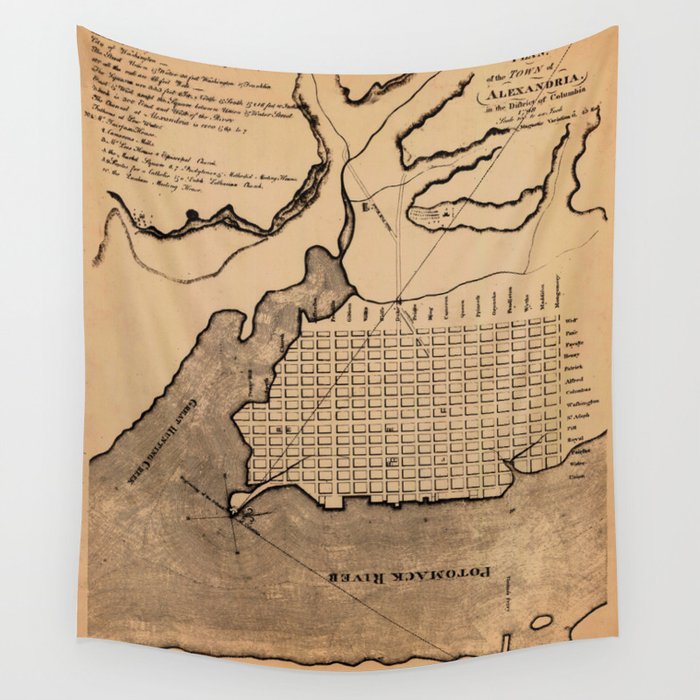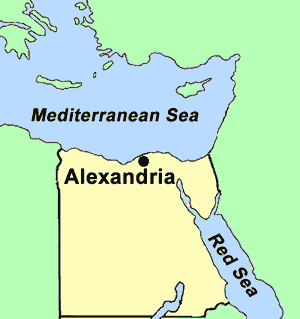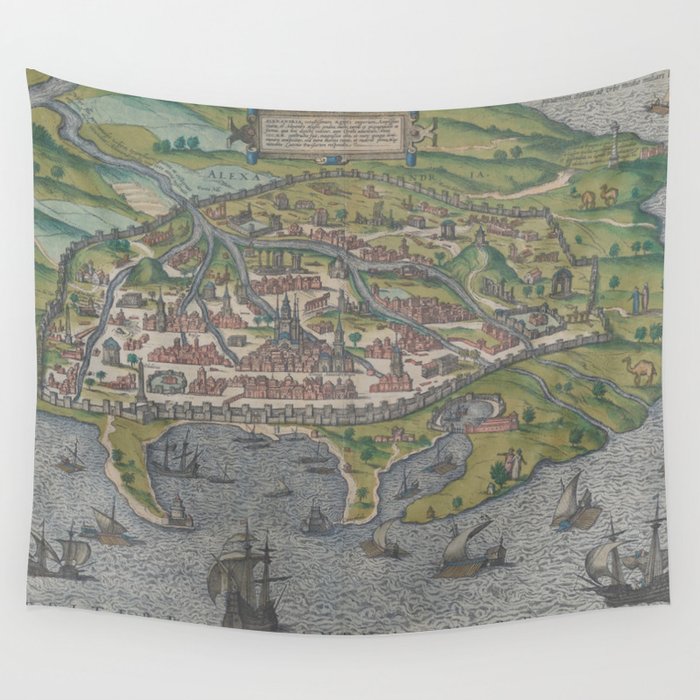Alexandria: A City on the Map, A Tapestry of History
Related Articles: Alexandria: A City on the Map, A Tapestry of History
Introduction
With great pleasure, we will explore the intriguing topic related to Alexandria: A City on the Map, A Tapestry of History. Let’s weave interesting information and offer fresh perspectives to the readers.
Table of Content
Alexandria: A City on the Map, A Tapestry of History

Alexandria, a vibrant coastal city in Egypt, holds a place of immense historical and cultural significance. Nestled on the Mediterranean coast, it boasts a rich tapestry of ancient wonders, bustling modern life, and a strategic location that has shaped its destiny for millennia.
A City of Ancient Glory:
Alexandria’s story begins with Alexander the Great, who founded the city in 332 BC, envisioning it as a beacon of Hellenistic culture. Its strategic position at the crossroads of trade routes, linking Egypt with the wider Mediterranean world, quickly propelled Alexandria to prominence. The city became a major center for commerce, scholarship, and the arts, attracting scholars, philosophers, and artists from across the ancient world.
The famed Library of Alexandria, considered one of the largest and most comprehensive libraries of antiquity, drew scholars and intellectuals to its halls, fostering a flourishing intellectual environment. The city also housed the Pharos, a towering lighthouse considered one of the Seven Wonders of the Ancient World, guiding ships safely into the harbor.
The Rise and Fall of Alexandria:
Alexandria’s golden age was marked by a period of unprecedented growth and prosperity. However, the city’s fortunes began to decline with the Roman conquest of Egypt in 30 BC. Despite this, Alexandria remained a major port city, but its intellectual and cultural dominance waned. Subsequent periods saw the city experience periods of growth and decline, its fate intertwined with the political and economic shifts of the wider region.
Modern Alexandria:
Today, Alexandria is a bustling metropolis, a thriving hub of commerce and industry. It remains a significant port city, connecting Egypt to the world through its maritime trade. The city’s diverse population reflects its rich history, blending Egyptian, Greek, and other cultures.
Alexandria on the Map: A Legacy of Influence:
Alexandria’s enduring legacy lies in its historical and cultural significance. The city stands as a testament to the power of human ingenuity, scholarship, and trade. Its ancient wonders, like the Bibliotheca Alexandrina, a modern tribute to its illustrious past, continue to attract visitors from around the globe.
Exploring Alexandria: A Journey Through Time:
A visit to Alexandria is a journey through time, offering a glimpse into the city’s rich past and present. Visitors can explore the ruins of the ancient city, including the Catacombs of Kom el Shoqafa, a remarkable underground necropolis. The Citadel of Qaitbay, a 15th-century fortress built on the site of the Pharos, offers breathtaking views of the Mediterranean Sea.
The bustling city center, with its vibrant markets, cafes, and restaurants, provides a glimpse into modern life. The Corniche, a scenic waterfront promenade, offers a relaxing escape, while the Royal Jewelry Museum showcases the city’s opulent past.
FAQs about Alexandria:
Q: What is the best time to visit Alexandria?
A: The best time to visit Alexandria is during the spring (March-May) and autumn (September-November) when the weather is pleasant and the city is less crowded.
Q: How do I get to Alexandria?
A: Alexandria is well-connected by air, rail, and road. The city has an international airport (ALE) and is easily accessible by train from Cairo.
Q: What are some of the must-see attractions in Alexandria?
A: Some of the must-see attractions in Alexandria include the Bibliotheca Alexandrina, the Catacombs of Kom el Shoqafa, the Citadel of Qaitbay, and the Royal Jewelry Museum.
Q: What is the local currency in Alexandria?
A: The local currency in Alexandria is the Egyptian pound (EGP).
Q: Is it safe to travel to Alexandria?
A: Alexandria is generally a safe city for tourists. However, it is always advisable to exercise caution and be aware of your surroundings, especially in crowded areas.
Tips for Visiting Alexandria:
- Learn some basic Arabic phrases. This will help you communicate with locals and enhance your travel experience.
- Dress modestly. While Alexandria is a modern city, it is still advisable to dress modestly, especially when visiting religious sites.
- Bargain at the markets. Haggling is a common practice in Alexandria’s markets, so don’t be afraid to negotiate prices.
- Try the local cuisine. Alexandria boasts a delicious and diverse culinary scene. Be sure to sample some of the local specialties, such as seafood and Egyptian sweets.
- Take a boat trip along the Mediterranean coast. This is a great way to see the city from a different perspective and enjoy the beautiful coastline.
Conclusion:
Alexandria, a city etched in history and brimming with modern life, continues to captivate the world. Its rich past, vibrant present, and strategic location make it a destination that offers something for everyone. Whether you are an explorer seeking ancient wonders, a scholar fascinated by its intellectual heritage, or a traveler seeking cultural immersion, Alexandria promises an unforgettable journey.






:max_bytes(150000):strip_icc()/GettyImages-157315776-5bf4d0ea46e0fb002616bc64.jpg)

Closure
Thus, we hope this article has provided valuable insights into Alexandria: A City on the Map, A Tapestry of History. We appreciate your attention to our article. See you in our next article!